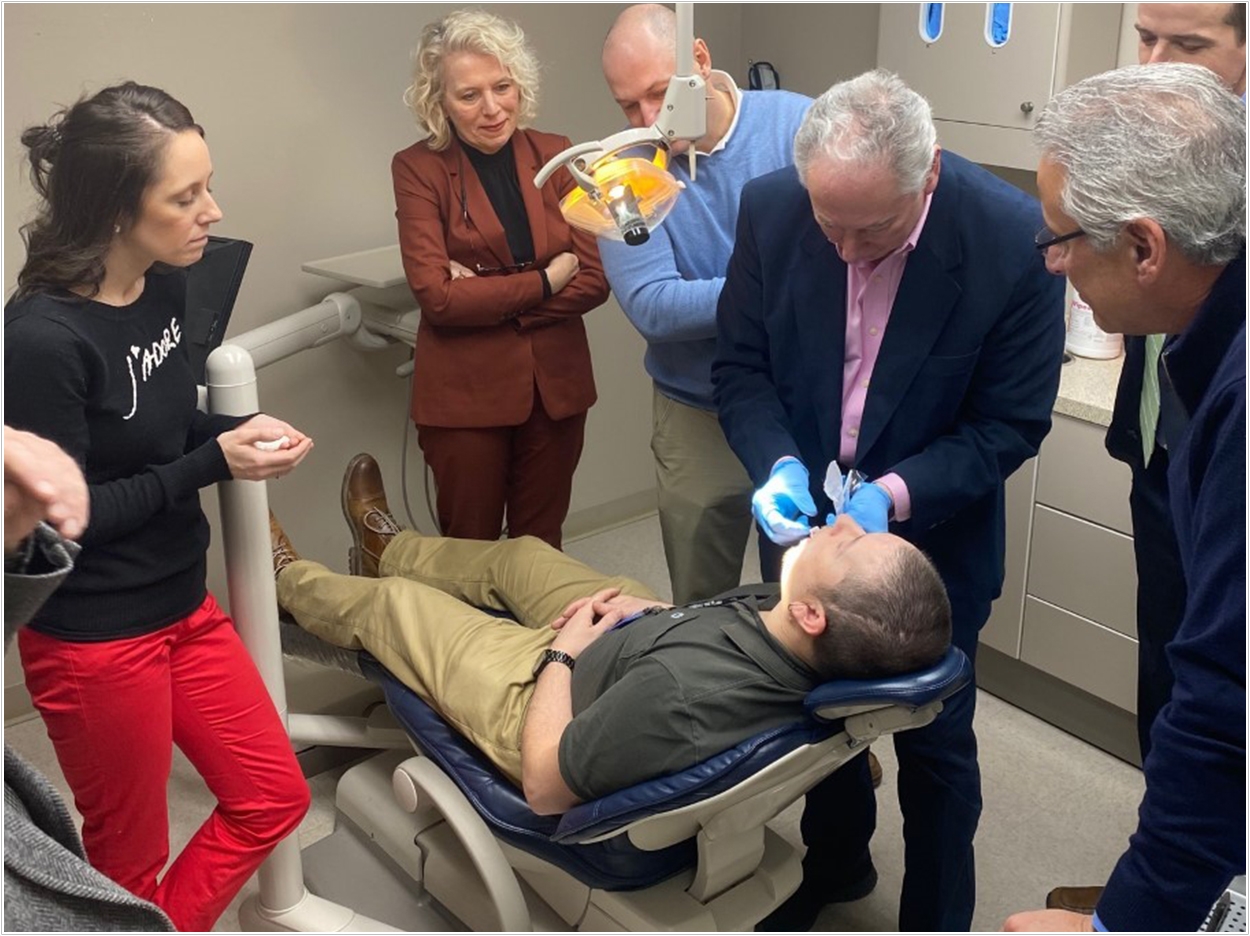
Seven clinicians from West Virginia and Maryland gathered at the West Virginia University (WVU) School of Dentistry on February 14 to begin training for a research project focused on a new method to screen for malignant oral cancer.
Aaron Weinberg, DMD, PhD, of the Case Western Reserve School of Dental Medicine has developed a method for screening potential oral lesions for cancer using a protein called beta defensin, which is produced by the soft tissues in the mouth to protect it from infection.
Weinberg and his colleagues have found that malignant oral cancers produce an abnormally high level of beta defensin. Their findings led to the development of a screening system that requires the dentist to gently scrape surface cells from a suspicious lesion to compare its protein levels to the opposite, healthy area of the mouth.
The WVU School of Dentistry has collaborated with Weinberg and his team to conduct a pilot test of the screening system in dental practices in West Virginia and Maryland. The clinicians who will be participating in the pilot were trained during the February session on how to recruit patients, collect tissue samples, and complete the study paperwork.
The study could begin by May, with 60 patients enrolled. If the pilot succeeds, the researchers could apply to the National Institutes of Health for a grant to perform a larger study to validate the screening system, which they believe could be a chairside resource for dentists to use to screen suspicious lesions.
Related Articles
Oral Cancers Recruit and Reprogram Nerves to Fuel Growth When p53 Is Missing
HPV-Positive Oropharyngeal Cancer Outcomes Differ by Race and Insurance Status
Botanical Drug Shows Effectiveness Against Head and Neck Cancers












